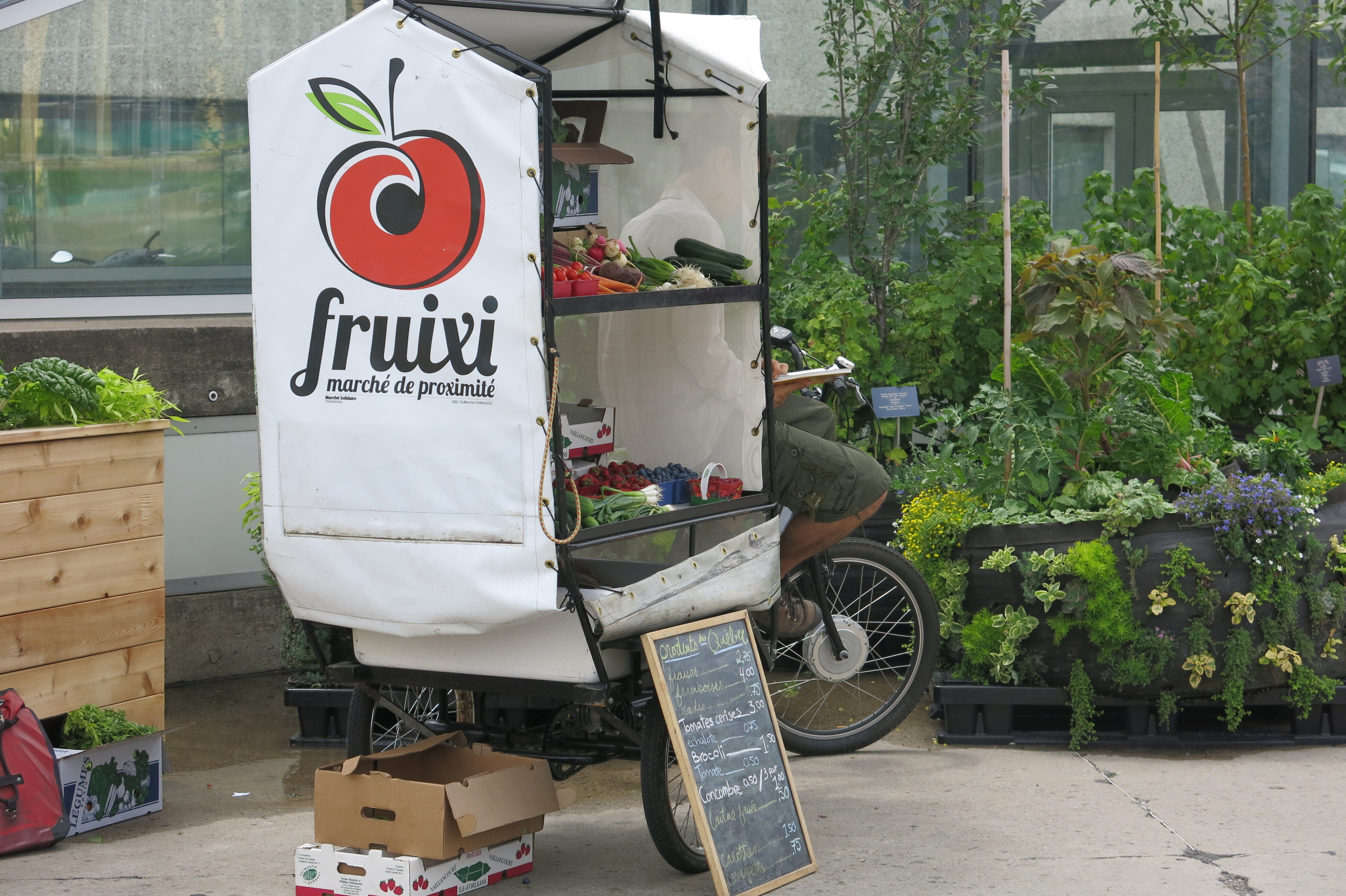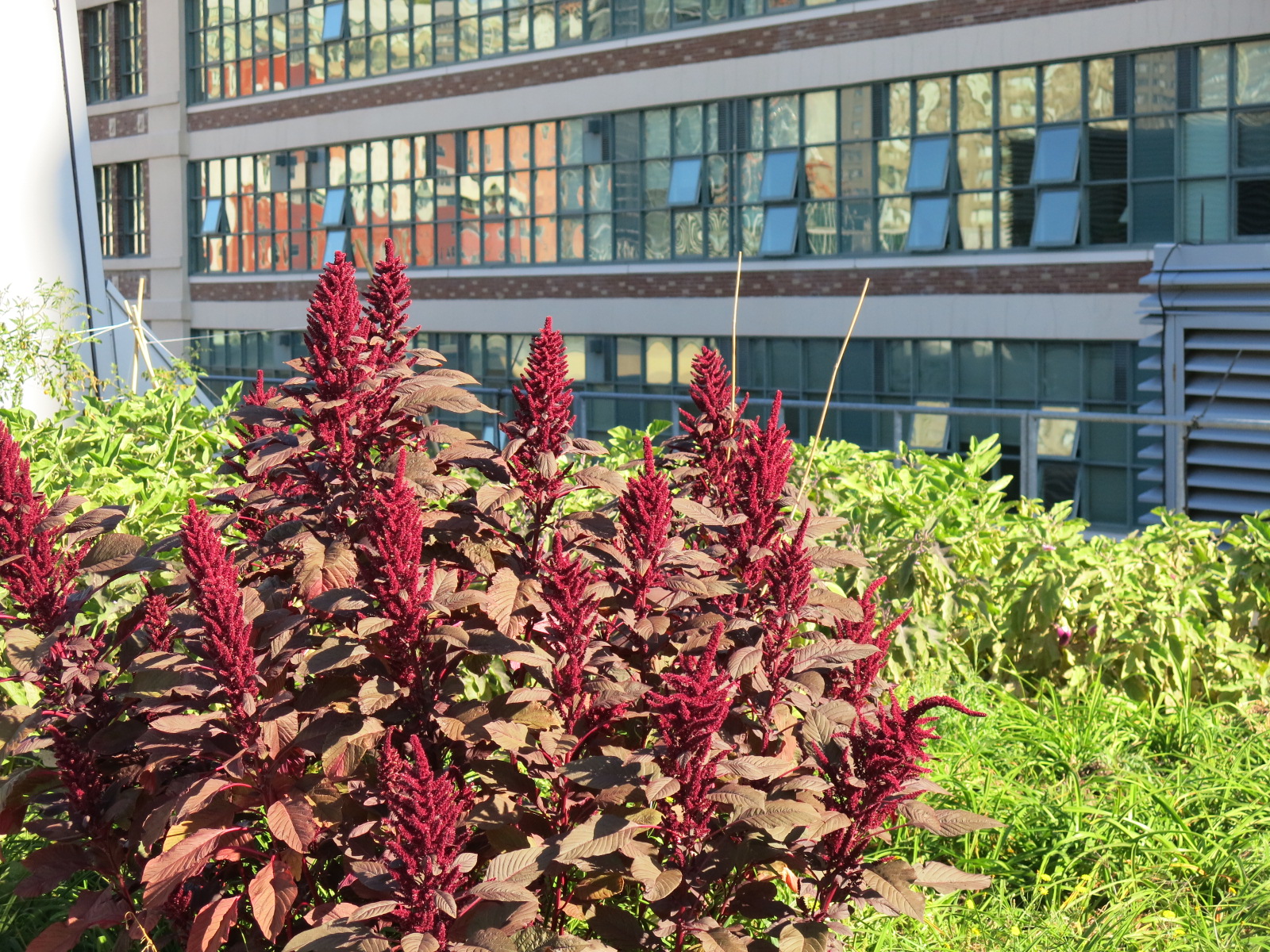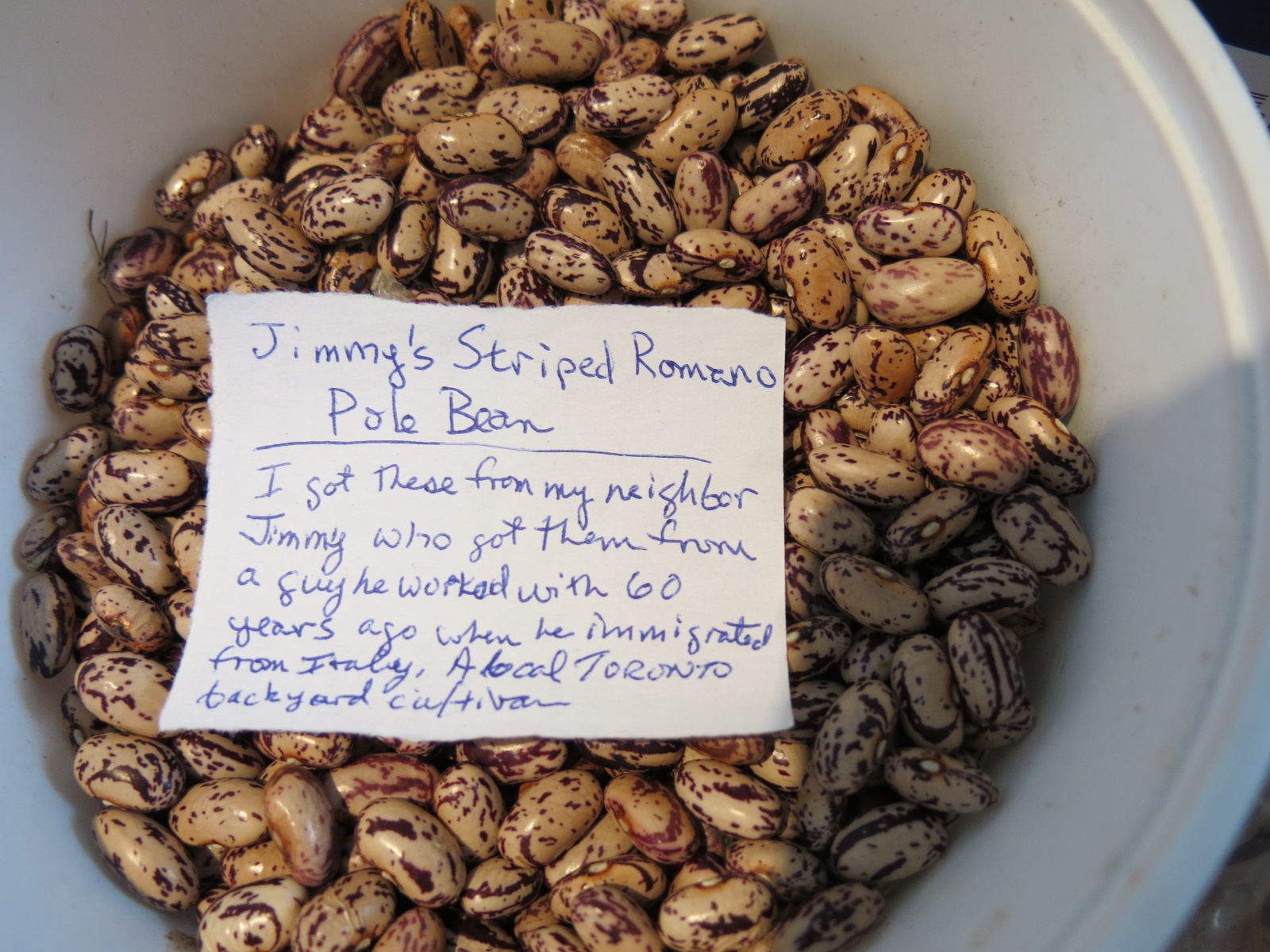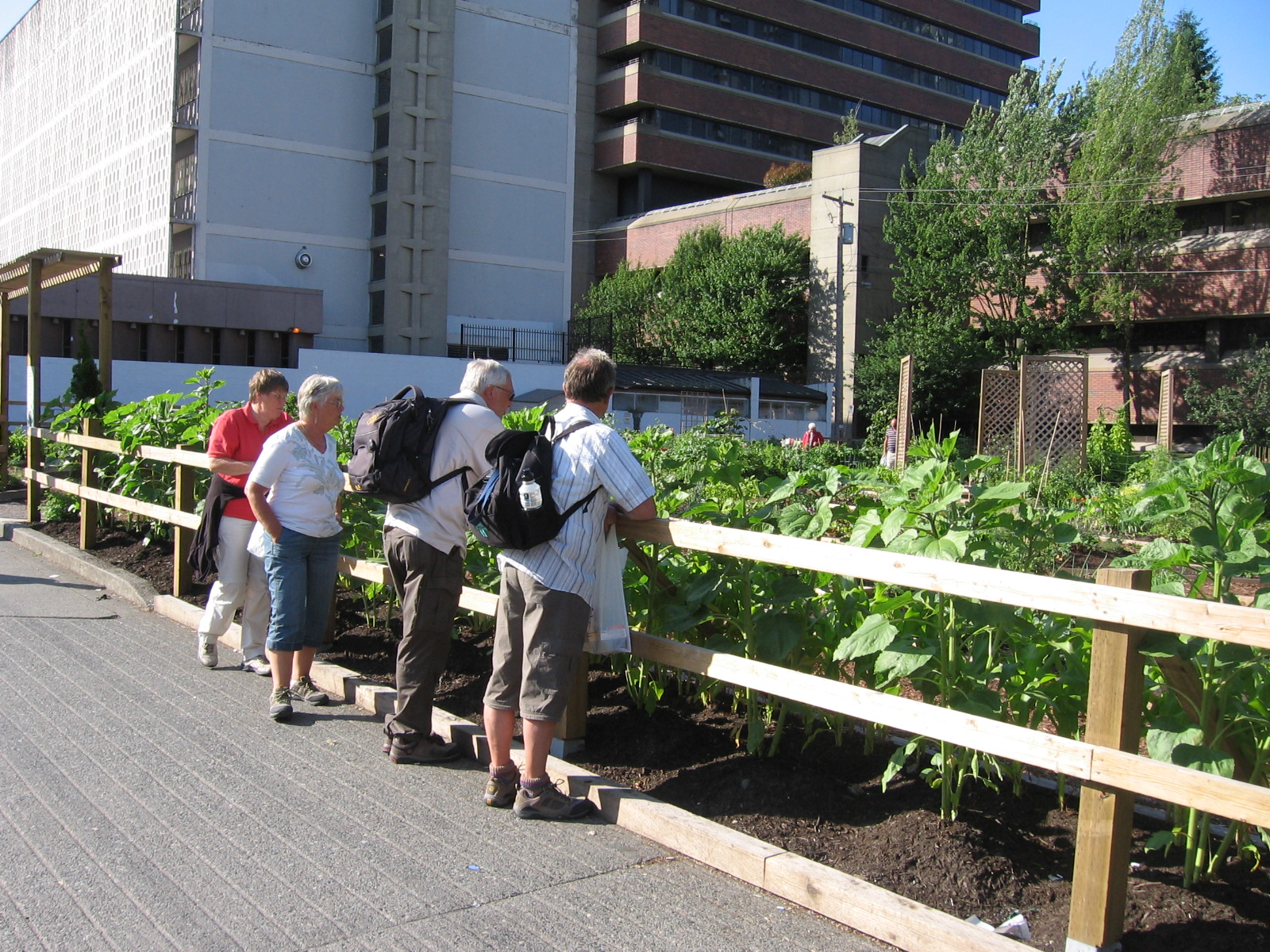Why grow food in the city?

- Creates business opportunities
- Generates income
- Develops job-related skills
- Reduces household food costs
- Increased vegetable consumption improves health of growers and their families, leading to reduced demand on provincial health care budgets
Health benefits
- People who grow their own food are more aware of where their food comes from and are more likely to eat fresh vegetables.
- Provides physical activity for all ages and abilities
- Increases access to healthy food
- Gardening is a proven stress reliever and enhances self-esteem

 Environmental benefits
Environmental benefits
- Creates more urban green space, which cools the city and reduces air pollution
- Rainwater is filtered through gardens, helping to keep lakes, rivers and groundwater clean and reducing the impact of storm water runoff
- Contributes to biodiversity by creating habitat for pollinators and birds
- Sustainable growing methods like composting divert waste, reduce methane gas released from landfill sites and trap carbon in the soil
- Growing food is a good way to engage people who might not get involved in environmental issues. More people involved = greater impact!
- See more about climate change here

 Community benefits
Community benefits
- Brings people of different backgrounds and experiences together
- Increases neighbourhood safety, reduces crime
- Reduces social isolation and increased sense of belonging
- Gives people an opportunity to give back to their community
- Encourages life-long and intergenerational learning
- Allows people from other countries to grow traditional foods and share their knowledge
- Teaches people community organizing skills that they can use in other contexts
- Uses under-utilized land and rooftops
- Provides opportunities for youth to develop skills and demonstrate leadership
- Creates vibrant public spaces that everyone can enjoy (not just gardeners!)
Adapted from: GrowTO: An Urban Action Plan for Toronto and the HSC Community Garden

